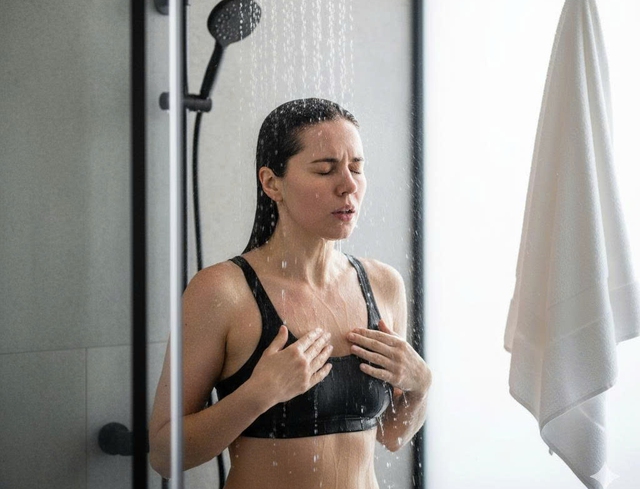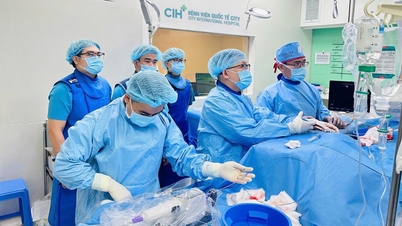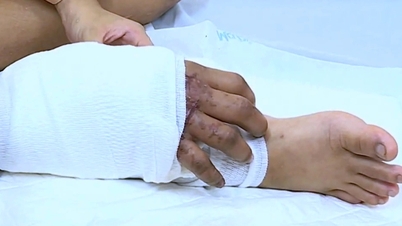Next, Dr. Laura Campedelli, a physical therapist at Boston Children's Hospital (USA), based on research, will explain the effects of cold showers on the cardiovascular and metabolic systems.
Cold showers can temporarily increase blood pressure.
When exposed to cold water, the autonomic nervous system reacts very quickly to keep the body warm by constricting peripheral blood vessels. As a result, blood pressure, heart rate and breathing rate all increase in a short time, according to the health news site Verywell Health.
Surprisingly, blood pressure usually returns to normal within about four minutes of a cold shower, meaning the effect is temporary.
However, for people with heart disease or circulation problems, sudden changes can put a lot of pressure on the cardiovascular system. Therefore, people with heart disease, heart failure or other cardiovascular diseases should talk to their doctor before taking a cold shower.

When you take a cold shower, your blood pressure, heart rate, and breathing rate all increase.
Photo: AI
Benefits of cold showers
In addition to affecting blood pressure, cold showers may support overall health in the following ways:
Improved blood circulation : Vasoconstriction upon exposure to cold water results in a reflex increase in blood flow during recovery.
Increased focus and energy : Small studies show that soaking in cold water for about 5 minutes increases alertness and energy levels.
Aids Muscle Recovery : Many athletes use cold therapy to reduce soreness after exercise.
Improve mood : Some studies show that cold showers can help reduce symptoms of anxiety and mild depression.
Good for skin : Cold water can reduce inflammation and oxidative stress in the skin.
Boost immunity : Data shows that people who take cold showers daily get sick less often; a three-month study of 3,000 people found that cold showers reduced sick days by 29%.
Think Before You Try a Cold Shower
Practice slowly: Start with a cold shower for 5 minutes and then increase to 10 minutes next time.
People with heart disease, heart failure or blood vessel problems should discuss with their doctor before taking a cold shower.
While taking a cold shower, if you experience symptoms such as difficulty breathing, dizziness, rapid heartbeat, or numbness in the limbs, you should stop immediately, according to Verywell Health.
Source: https://thanhnien.vn/bac-si-tam-nuoc-lanh-anh-huong-den-huet-ap-theo-cach-khong-ngo-185250924234142109.htm


![[Photo] Soldiers guard the fire and protect the forest](https://vphoto.vietnam.vn/thumb/1200x675/vietnam/resource/IMAGE/2025/9/27/7cab6a2afcf543558a98f4d87e9aaf95)

![[Photo] Prime Minister Pham Minh Chinh attends the 1st Hai Phong City Party Congress](https://vphoto.vietnam.vn/thumb/1200x675/vietnam/resource/IMAGE/2025/9/27/676f179ddf8c4b4c84b4cfc8f28a9550)





























































































Comment (0)